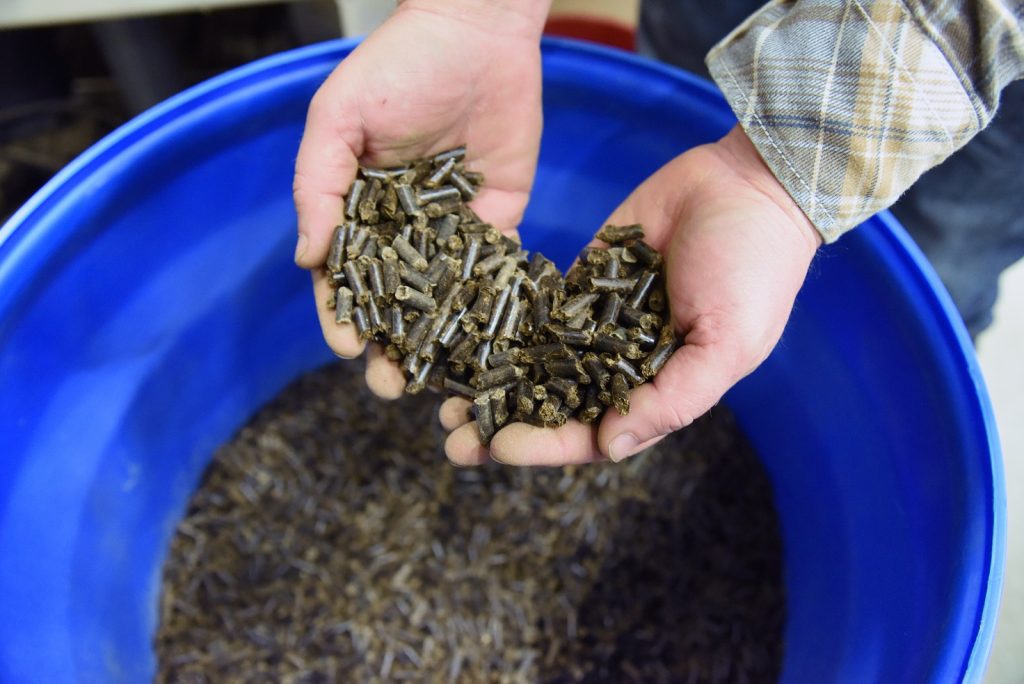Process Development Unit

Commercial plants that process bulk solids typically operate at a fraction of design capacity during their first year. One of the primary reasons is poor feed handling. A single feed handling problem—ranging from plugged augers to broken equipment—may bring the plant to a standstill until the problem is resolved. BFNUF’s primary capability, the Process Development Unit (PDU), is a multi-ton per hour, modular feedstock preprocessing system. The PDU allows industry partners to test a variety of grinding, drying, pelletizing, cubing, torrefaction, and mechanical and chemical separation options during design and scale-up of bioenergy facilities. These preprocessing operations allow the production of feedstock that handles better and improves downstream yields, while also lowering the overall cost of biofuel/biochemical production.
Historically the PDU has made feedstocks for biochemical conversion, pyrolysis and gasification out of biomass and municipal solid wastes. The PDU’s preprocessing capabilities can be grouped into the following categories:
Particle Size Reduction and Specification
Size reduction can be performed at the ton scale using hammer milling, knife milling, a Forest Concepts “Crumbler”, or a shredder. These size reduction units can be integrated with a variety of screens that help control the particle size distribution including both oscillating and disc screens.
Size reduction at the kilogram scale can be performed using a cryogenic ball mill, a slurry attrition mill, a disc refiner, a roller mill, as well as several knife mills. Kilogram scale separations can be performed on screens / sieves for dry material but also for wet material using a wet screen and a fiber classifier.
Material Classification, Blending and Densification
Mixed stream separation (or targeted blending) can be performed at the ton scale using tools like an air classifier, ballistic screen, or an electrostatic separator. These separation tools are often preceded by a custom bale deconstruction unit to make sure that they are receiving controlled flows to improve separation capabilities. Blending can occur in various mixers that can then be fed to densification equipment like a cuber or a pellet mill.
Kilogram scale separations can be performed based on density with a specific gravity table, a brush separator, and a hydro-cyclone for fine wet materials. Automated sorting systems that make use of visual, near and mid infrared, and x-ray sensor before pneumatic separations can also be used in the PDU.
Material Conditioning Systems
The PDU can thermally and chemically alter material with equipment such as a rotoclave, a steam explosion system, a semi-batch torrefaction system, a 70L solvent extraction system, and ton per day plug screw feeder with reactor that can process material with both acid and base addition. Wastes can also be dried at the ton scale with a natural gas fired rotary dryer as well as a low temperature pellet cooler. UV degradation and environmentally controlled storage chambers are available for kilogram scale samples.


